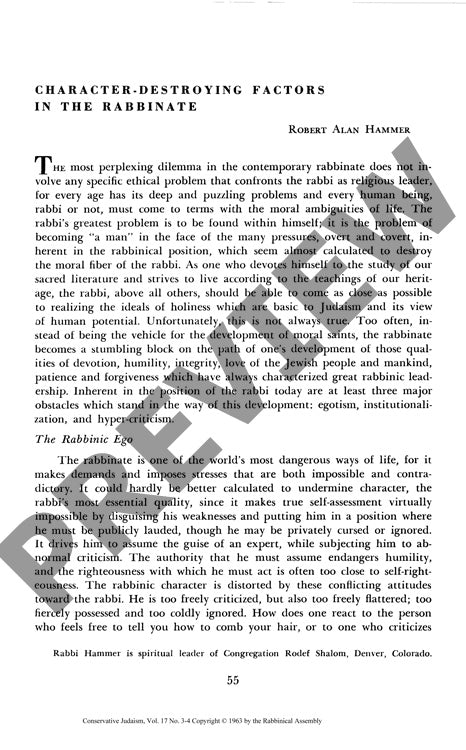Character Destroying Factors in the Rabb
Couldn't load pickup availability
The modern rabbinate places clergy in an impossible bind: uphold religious authority while maintaining humility, accept both excessive praise and harsh criticism, and embody institutional Judaism while preserving individual authenticity. These contradictory demands create profound psychological and ethical challenges that can undermine rabbinic character development. Through qualitative analysis of rabbinic experiences and institutional dynamics, three primary character-destroying factors emerge: egotism, institutionalization, and hyper-criticism. Critical examination reveals how ecclesiastical positioning strains rabbi-congregant relationships, while constant public scrutiny impacts rabbinic identity formation. As the historically lay-oriented rabbinate transforms into an ecclesiastical structure, the growing distance between rabbis and congregants fosters potential hypocrisy and diminishes spiritual effectiveness. Moreover, intimate exposure to congregational shortcomings often erodes *ahavat Yisrael* (love of the Jewish people)—a cornerstone of rabbinic leadership. The research demonstrates how these structural challenges create nearly impossible psychological pressures that threaten the moral development essential to effective religious leadership. A return to the fundamental conception of rabbi as teacher (*hakham*) rather than cleric, emphasizing mutual learning relationships, could help mitigate these character-destroying tendencies and restore authentic rabbinic authority.

More Information
-
Physical Description
-
Publication Information
Published 1963
ISBN
-
Publication Credits
Reuven Hammer

